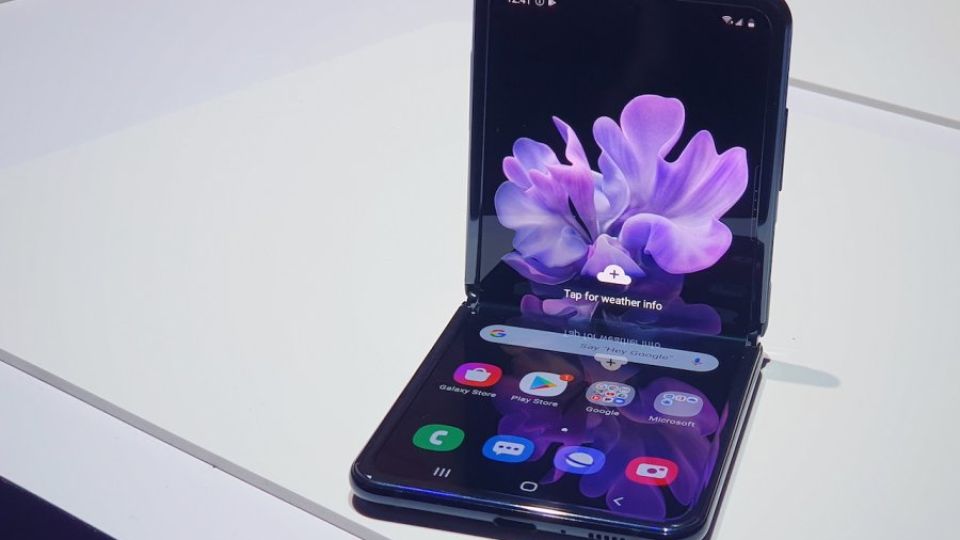February 21, 2023
JAKARTA – Samsung is zeroing in on Indonesia’s smartphone market, of which OPPO still commands the biggest share, with its foldable devices capturing more consumers in the high-end segment, according to a recent report.
Canalys, a global tech market analysis firm, revealed in a February market update that last five leading smartphone brands in Indonesia by market share were OPPO, Samsung, Vivo, Xiaomi and Realme.
“Samsung’s foldable and enterprise strategy looks to capture consumers in the high-end. It sees strong success through its above-the-line marketing and dealer incentive programs,” Canalys research analyst Chiew Le Xuan told The Jakarta Post on Monday.
Chiew said Samsung’s foldable phones saw a respectable degree of success, so much so that the feature might become a new trend this year as other brands developed their own versions.
“Non-Samsung foldables could be the next theme for 2023,” he said.
At the end of 2022, OPPO commanded 21 percent of the Indonesian market in terms of units shipped to retailers and distributors in the country, just a percentage point ahead of Samsung’s 20 percent, slightly down from a lead of 2 percentage points in the third quarter.
Zooming out on Southeast Asia, however, Samsung reigned supreme in November 2022 with 5.9 million units shipped, or 25 percent of the regional market share. Runner-up OPPO’s 4.5 million units translated to a market share of 19 percent.
The report attributed OPPO’s dominance in Indonesia to the Chinese electronics maker’s strategy of maintaining a “sweet-spot price band” of between US$150 and $200 for its devices, as well as offering multiple mid-range devices that were cheaper than other phone makers’ products of the same quality, explained Chiew.
According to Canalys’ February data, Vivo, Xiaomi and Realme respectively held 19, 14 and 12 percent of the Indonesian market. All ranked third in the Southeast Asian market, with Vivo shipping 3.5 million smartphone units, followed by Xiaomi’s 3.1 million and Realme’s 2.1 million.
“Vivo has opted for a more defensive approach by reentering the ultra-low-end to support its market share,” said Chiew, while Xiaomi was struggling “to replicate its Redmi 9A and 9C performance, which saw strong success in 2021”.
He went on to say that competition in the ultra-low-end smartphone market had intensified with vendors like China’s Transsion and Korea’s Samsung making competitive promotional offers in the sub-$100 price band.
However notable those figures might seem, the overall smartphone market in both the region and globally is dwindling due to headwinds in consumer demand.
In Indonesia, Samsung was the only vendor that kept last year’s decline in shipments out of the double digits, experiencing growth of minus 5 percent. The other top five brands reported minus 15 percent growth or a greater decline in the country, with Xiaomi faring the worst with minus 37 percent.
In Southeast Asia, smartphone shipments were down 4 percent year-on-year (yoy) in the third quarter of 2022, with the total of 23.5 million devices shipped marking the lowest level since the first quarter of 2020.
That still looks strong compared to the global picture, with full-year shipments around the world plummeting 12 percent in 2022 to below 1.2 billion units.
While it was not a top contender in either Indonesia or the region, Apple was second only to Samsung in the 2022 global market with a share of 19 percent, or 232.2 million units shipped.
Samsung, meanwhile, kept its top spot with 257.9 million units, giving it a 22 percent market share last year. Xiaomi’s 13 percent global market share ranked it third, ahead of OPPO and Vivo, which came respectively fourth and fifth with 10 and 9 percent.
The top five smartphone vendors remained unchanged from 2021.


